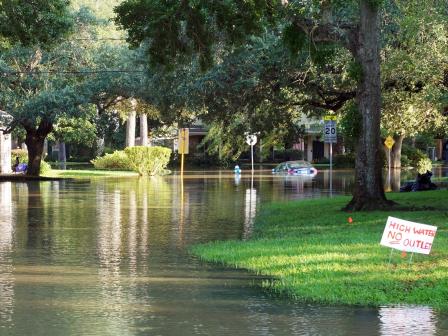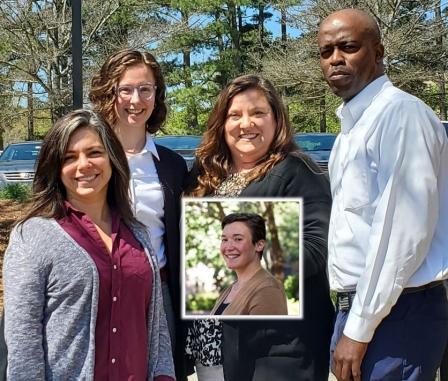
Archived Content
This site contains information that has been considered archived and will no longer be updated.
EDA Grant Supports Disaster Preparedness and Recovery in North Carolina
North Carolina is no stranger to natural disasters. In recent years, the Tar Heel State has hosted some of the most destructive hurricanes in American history, including Dorian (2019), Florence (2018) and Matthew (2016). Combined, these storms have accounted for more than $24 billion in damages to homes and businesses and the loss of more than forty lives throughout the state.
The North Carolina Office of Resiliency and Recovery (NCORR) was created in response to these disasters. Its mission is to help state communities and economies rebound, adapt, and thrive in response to natural disasters. Their critical work is supported by the U.S. Economic Development Administration (EDA).

In 2020, EDA awarded a $1 million grant through its Disaster Supplemental Funding program to provide economic guidance and strategic training on preparing for natural disasters. The award was also designed for the establishment of a statewide framework on disaster resilience planning.
“During natural disasters, our entire supply chain is impacted,” said Brian Byfield, Resilient Communities Program Manager. “Farmers and manufacturers cannot produce their goods and stores cannot stock their shelves. Agriculture and tourism are often impacted as well.”
EDA’s support led to the creation of a new program called Regions Innovating for Strong Economies and Environment (RISE). Focusing on the eastern portion of the state, RISE was created to improve capacity for local leaders in response to climate issues and to create a portfolio of projects to address those problems. Most significantly, it led to the development of the Resilient Communities Guidebook, a climate resilience resource for areas all across the state, whether urban or rural, big or small.
The guidebook is divided into two sections – the Playbook and the Idea Book. The first offers residents step-by-step instructions for dealing with natural disasters. It also provides policymakers and local leaders with a vulnerability assessment that they can use to help better prepare their communities for these events. The Idea Book highlights best practices and success stories from across the state while offering project contact information as well.
“We wanted this to be a collaborative process and to rebuild trust with state and local government,” Byfield recalls. “We created a steering committee that brought together residents from different geographic areas, including those who have never been a part of the decision making process. This provided us with a wide array of topics and issues for the guidebook to address.”
Central among these was the identification of resiliency-based projects and the funding required for their implementation. One such example is the Duke Energy Foundation, an electric utilities company located in Charlotte that provides service to more than 8 million customers in six states. They are committed to providing accelerated grants necessary to help communities implement their projects. EDA is working to connect these projects with a diverse array of federal, state, and local organizations for their completion.
While NCORR was designed to be an in-person organization, production of the guidebook proved difficult in the age of COVID-19. Committee members had to pivot throughout the production process, learning new technologies and conducting virtual workshops.
The first edition will be released in Summer 2023 and is designed to be a living document, to include updates as they become available. It offers a variety of potential options, including nature-based solutions and education programs, allowing regions to better prepare themselves for climate resilience.
Byfield appreciates the support and the accommodations that EDA provided throughout the process, giving NCORR the space and time required to complete the project.
“While workforce development is key, we also wanted to understand and address the underlying issues involved. EDA was very open-minded and supportive of that.”
In conjunction with the guidebook, NCORR is also developing the North Carolina Climate Data Clearinghouse, a website to include all climate data in one central location. They plan to launch this new endeavor in 2024.
EDA has a long history of successfully supporting disaster recovery and resiliency efforts (PDF). Our role is to facilitate the timely and effective delivery of Federal economic development assistance to support long-term community economic recovery planning and project implementation, redevelopment, and resilience.
This project, one such example, was developed through consultation with several North Carolina Economic Development Districts (EDD). As a living document, the guidebook will be used to further enhance other economic development initiatives throughout the state, including its Comprehensive Economic Development Strategy (CEDS).
For more information on aligning the CEDS with hazard mitigation planning to increase resilience, please see the Comprehensive Economic Development Strategy and Hazard Mitigation Plan Alignment Guide Summary.
